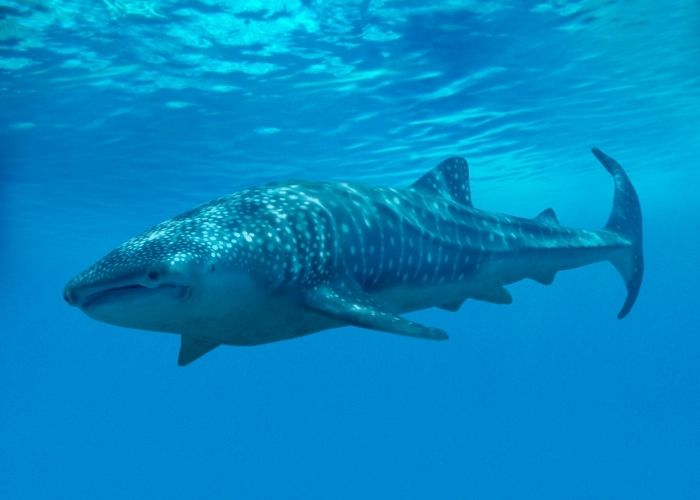BARCELONA – With the increase in fishing in the coastal area off the Costa Brava, more and more shark species are threatened with extinction. Fishing areas and the natural habitat of sharks overlap, increasing the risk of bycatch.
Despite their importance to seas and oceans, sharks are an increasingly endangered species. They are at the top of the food chain and feed on fish populations. Therefore, they prevent certain populations from exploding and taking over an entire area. And as such, sharks are the immune system of the ocean.
Researchers from the University of Barcelona (UB) and the conservation organisation Submon conclude more and more shark species are threatened with extinction due to the increase in fisheries in an article on the conservation status of shark populations published in the journal Aquatic Conservation: Marine and Freshwater Ecosystems’.
Important ecological role
Sharks are the largest predatory fish in marine ecosystems. Furthermore, they are at the head of the food chain and keep it in balance. However, much is still unknown about the biology and ecology of sharks in the Mediterranean. Moreover, a total of 21 shark and ray species are protected on the recommendation of the General Fisheries Commission for the Mediterranean (GFCM).
Category ‘vulnerable’
In fish, we distinguish bony fish and cartilaginous fish. Sharks belong to the cartilaginous fishes. The Mediterranean Sea has a large biodiversity of cartilaginous fish that have been classified as ‘vulnerable’ by the International Union for Conservation of Nature (IUCN). An example of this is the basking shark. Most cartilaginous fish (including sharks) have a slow reproduction and growth rate, making them more vulnerable than bony fish. However, if too many sharks are caught, a shark species is at great risk of extinction.
Situation is deteriorating
After a 2007 assessment, the IUCN concluded that 43% of the population of cartilaginous fish in the Mediterranean is at risk. Consequently, this is stated by the World Wildlife Fund in its 2019 report ‘Sharks in the Mediterranean: a call for action’. According to the report, the situation appears to be deteriorating in a worrying way.
The rapid development of fishing technology has resulted in fishing areas being expanded, fishing at greater depths and longer. All this would have a negative impact on the survival chances of shark populations, says Manel Gazo, lecturer at the UB and director of Submon.
Analysis by-catches
Many sharks disappear as a result of bycatch. Most of the sharks caught are simply thrown back into the sea. However, they are already dead or so weakened that their chance of survival is very small.
As part of the study, by-catches of trawl and longline fishermen in Costa Brava port were recorded and analysed. This showed that as many as eight shark species were caught unwanted. Five large-sized shark species (more than 200 cm). These were the thresher shark, the basking shark, the sooty shark, the shortfin mako shark, and the great blue shark. And three medium-sized species (90-100 cm), such as the tope shark, the spiny dogfish, and the spotted smoothhead shark.
Cooperation with fishermen
The collaboration with the fishing industry has been of great importance during the research, says Gazo. “Only they have the local ecological knowledge of the past and present,” he explains. “An effective way to prevent shark by-catches has still not been found, other than the introduction of a quota policy and some changes to fishing gear,” the expert continues, “but it is clear that the fishing industry will have to be involved in finding a solution”.


